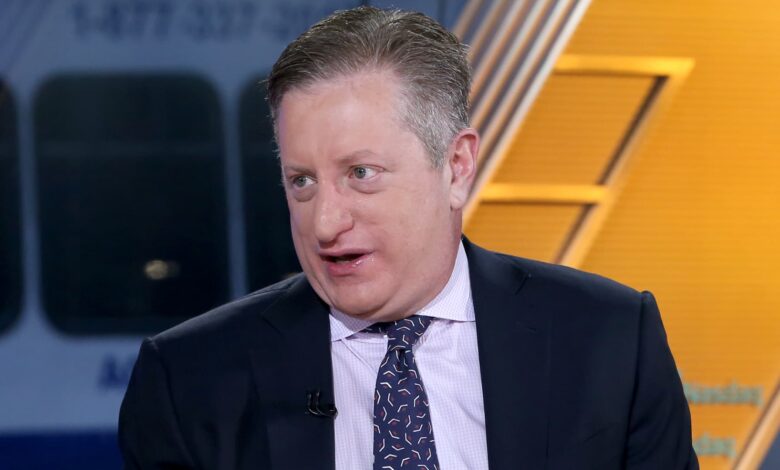Steve Eisman touts a new thesis on the artificial intelligence boom

Steve Eisman of “The Big Short” -fame said a new thesis derived from the artificial intelligence boom has caught his attention. The senior portfolio manager at Neuberger Berman said if AI turns out to be as successful and potent as the world expects, the cost of creating software could implode, weighing on companies in the industry. “The moats that some of the software companies, not all but some, have around their businesses are not going to be quite as high,” Eisman said Thursday on CNBC’s ” Squawk Box .” “You can make an argument that the revaluation of hardware is going to continue and that some parts of software will derail.” For years, tech firms focusing on software have outperformed hardware producers, but that trend could reverse as businesses step up hardware purchases to support AI growth. “If it’s true, it’s a very long term thesis, so there’s plenty of time to figure it out. But it’s one of the more interesting things that I’ve heard in a long time,” Eisman said. Eisman shot to fame by shorting collateralized debt obligations to profit from the demise of subprime mortgage loans before the 2008 financial crisis. His explots were chronicled in Michael Lewis’s book “The Big Short,” and the subsequent Oscar-winning movie. ‘Hidden AI play’ The widely-followed investor has been closely tracking the AI developments in the market. A few weeks ago, he called Apple a “hidden AI play,” an idea that the market just figured out earlier this week. On May 21, Eisman said Apple is going to be the biggest beneficiary from AI as the tech giant would enjoy a new product cycle powered by new AI-powered applications consumers want to use. Apple shares shot to a record high this week after CEO Tim Cook unveiled expansive plans for AI across its family of devices. Apple announced it would weave generative AI technology across its native apps and its latest devices, with features ranging from writing-assistance technology to generative AI-generated emojis. Eisman said Microsoft has the same story as Apple, while Oracle , Google’s Alphabet and Meta have tremendous databases that help them benefit from the rise of AI.



